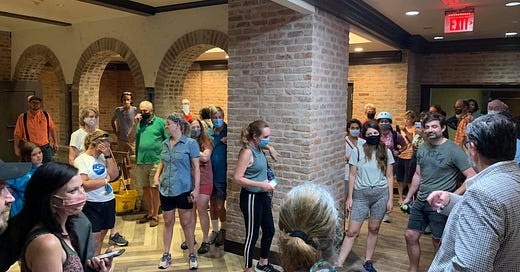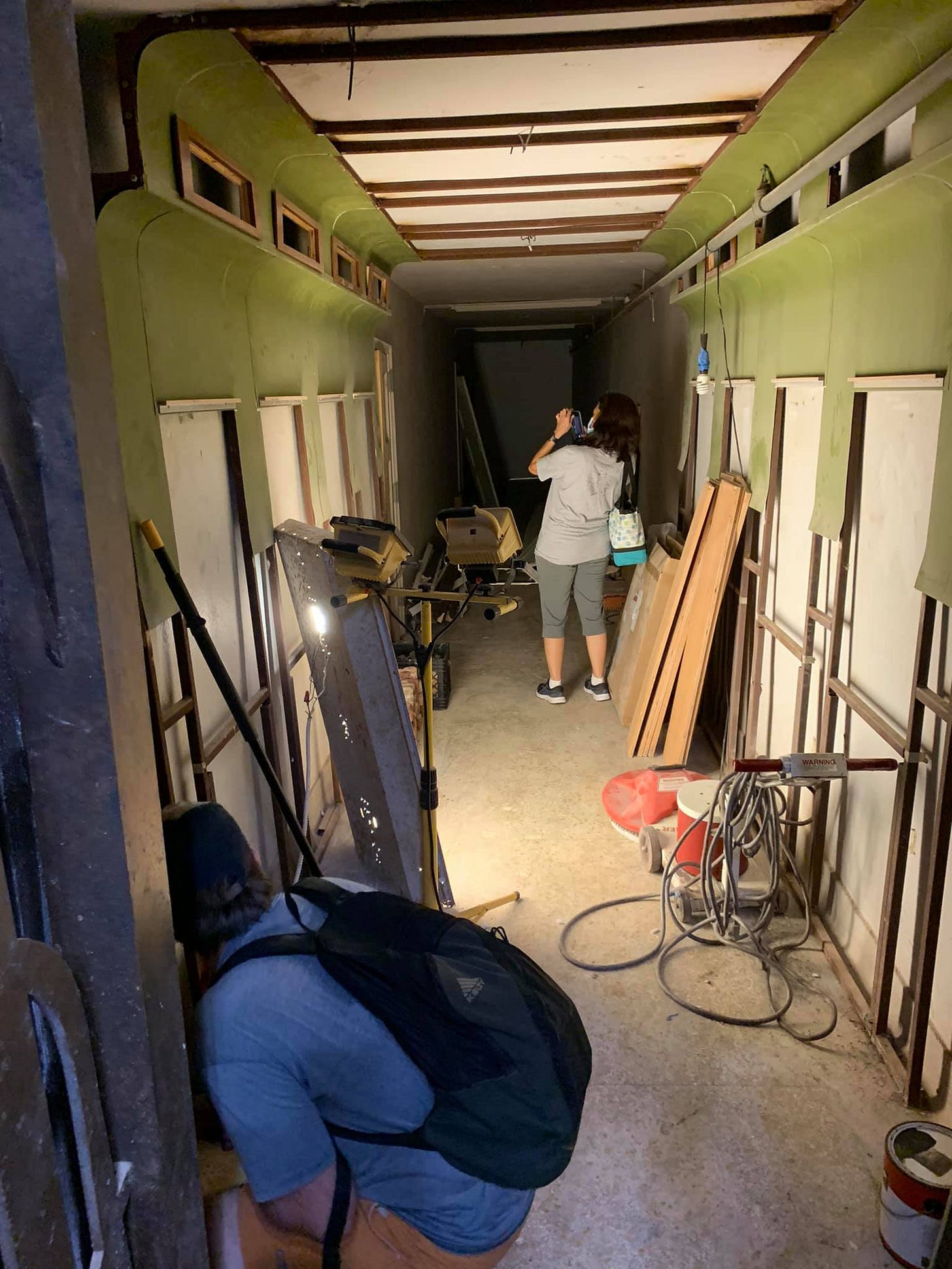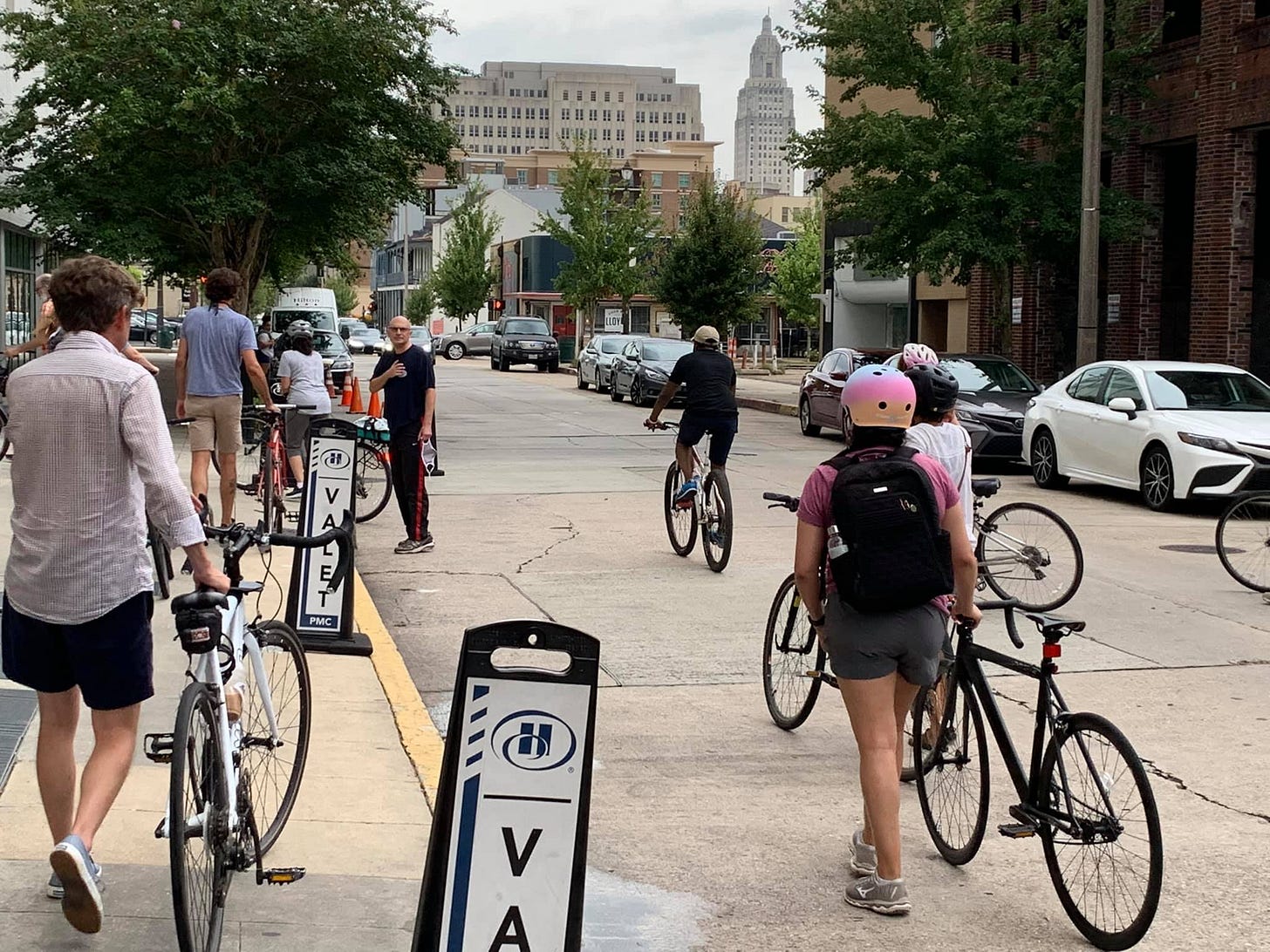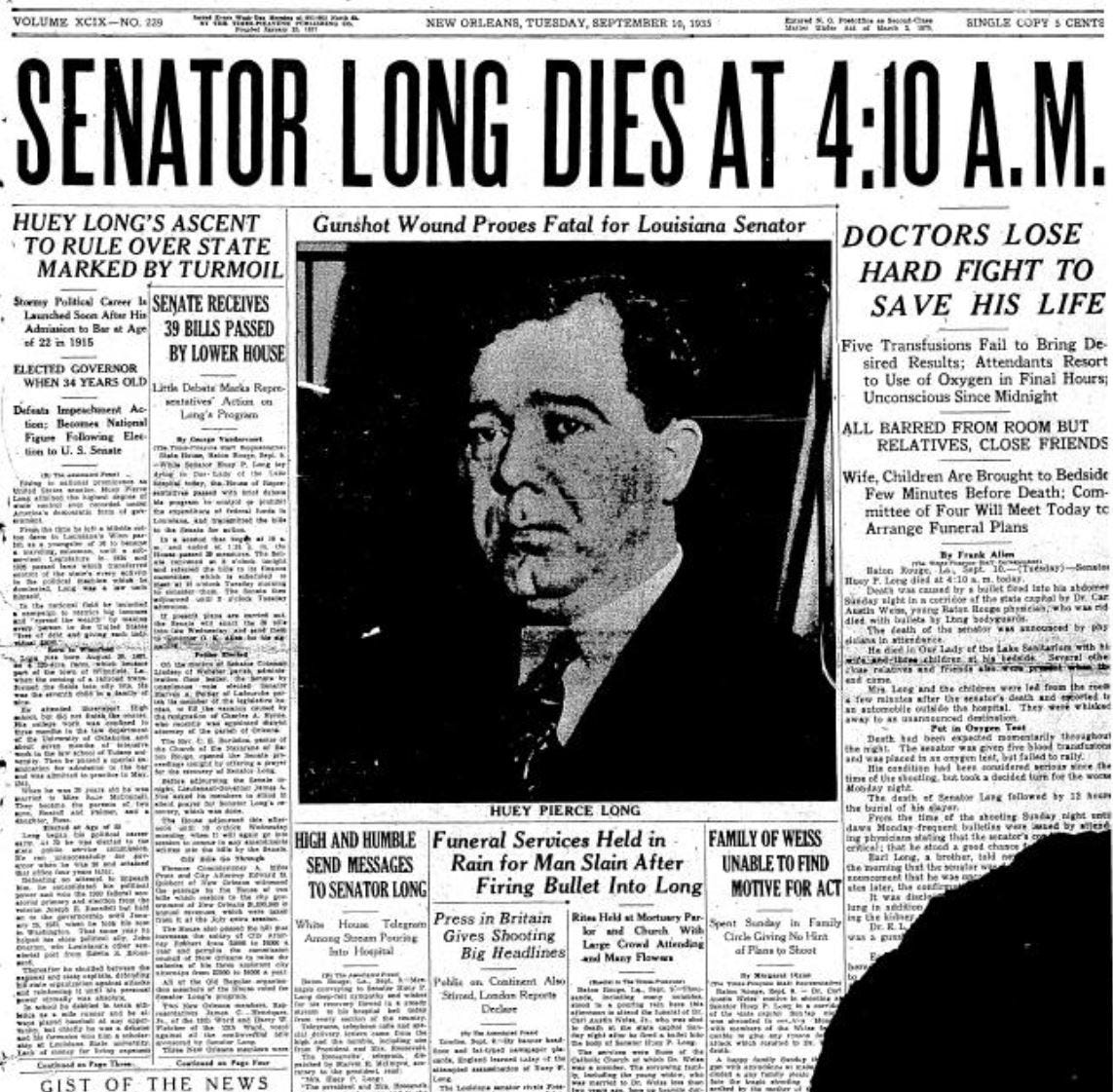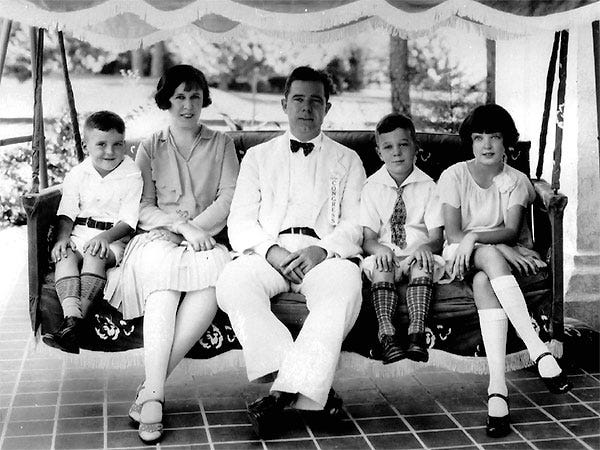The tunnel tour grabs attention, so I highlighted the wallflower
Monday, August 2 had probably the highest attendance of any ride I’ve ever led. Why did this ride attract so much attention? A tunnel.
A tunnel?
Yes, a tunnel. But not just any tunnel, this is THE tunnel used by Huey Long to go get a little extra-marital love and escape the press.
Many never knew it existed, others thought it would be more impressive, and yet others probably just wanted to go for a bike ride. Whatever the motivation, it surely inspired folks to action.
I would say we had about 40 to 45 people total. A good 30 of them showed up at the Electric Depot at 6 p.m., even as thunderclouds threatened to drench us all. The weather ended up being perfect, however. It was an ideal night for a ride.
The remaining gaggle of folks met us at the downtown Hilton.
“The ‘Heidelberg Hotel’ will be the name of the new hotel nearing completion on Lafayette Street at the corner of Convention Street,” reads a clip from The Advocate published on August 7, 1927. “It is being named after Roy Heidelberg, who formerly operated Istrouma Hotel when it was known as the Alvis. The new hotel will be completed by September and will be ready to serve the public by October it is said.”
It cost $1 million dollars then, which is roughly $15.6 million by today’s standards. Obviously, a building of that value was of high significance to the city of Baton Rouge. There were already several hotels in town, but this one was going to be a real jewel.
The story I told that night wasn’t about the cost of the hotel or Roy Heidelberg. It wasn’t even really about Huey Long, who made the tunnel infamous. Instead, I told the story about the person who didn’t get all the attention. The silent one who, like the tunnel, remains a bit neglected by history.
Rose McConnell was born on April 8, 1892 in Greensburg, Indiana. Her family moved to Shreveport, La. when she was 9-years-old. She met Huey Long when she was just 18-years-old and he was roughly the same. He was working as a traveling salesman and got tapped to judge a baking contest. The story goes that he liked her so much, he proclaimed her the winner.
From that point on, Rose takes a backseat in the narrative of her life. Her story becomes Huey’s story. Everything about her is about how she supported him, even after his death.
After Huey was assassinated, she was appointed by the sitting governor to serve out the remainder of his term in the senate. She then ran for the seat in the special election and won. That win secured her as the first woman in Louisiana’s history to become a senator. She was only the second woman in history to be appointed to the senate.
Not too shabby, Rose!
She supported the issues Huey set forth and diligently protected farmers. She fought for the little guy and then quietly stepped out of the spotlight when her time was up. She didn’t seek re-election. One and done!
Rose did some remarkable things, though little of that is documented. Instead, the significance of the tunnel is that Huey used it to go see his mistress while Rose was left along, devoted to their three children. In fact, she was living with her daughter in Colorado at the time of her death.
History goes to the victor, that’s what they say. Well, we can’t go back and make the press report on the people who didn’t do flashy things “worthy” of media attention, but we can take a stronger look at those around us today. Who are the silent heroes of our everyday lives? Perhaps we should give more thanks to them and tell their story now, because lord knows they’re not going to.
I hope you’ll join us for a future ride. We meet every Monday at the Electric Depot on Government street. Every week the story is different, but the hope is to find more of the everyday moments that make this city what it is. Our history is more than just big, flashy moments, so it stands to reason that our future is dependent on the same.

